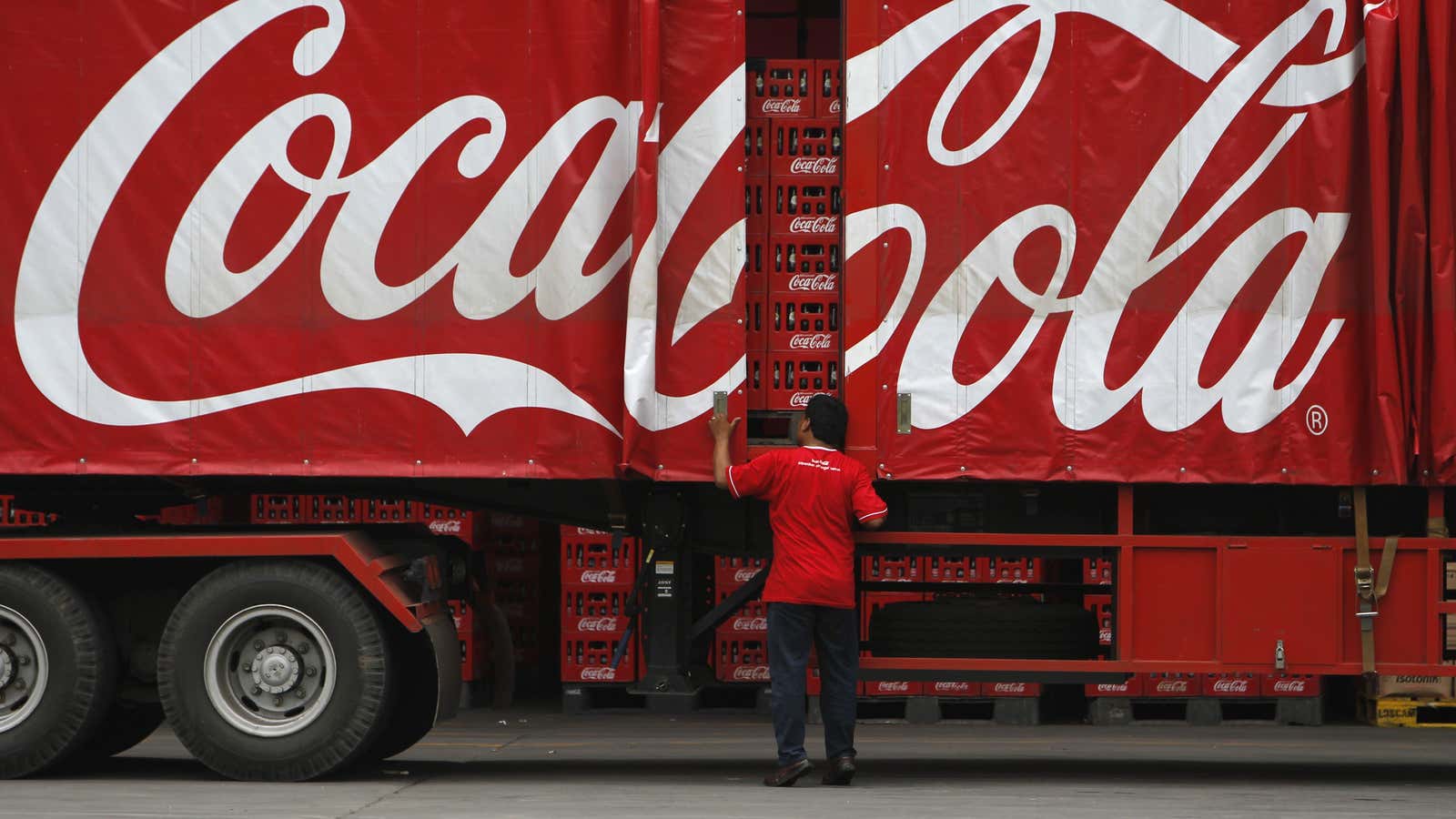The US organization representing doctors that care for children is taking a public stand against sugary drinks.
The American Academy of Pediatrics this week issued a joint statement with the American Heart Association asking local, state, and federal policymakers to consider ways to curb sugar consumption. In staking a position, the AAP brings more than 67,000 physicians into the fold of medical professionals who say it’s time for the government to act on a growing public health problem. More importantly, it puts the health of children front-and-center in the fight between public health advocates and the makers of sugary drinks, giving the argument a new sense of urgency.
“On average, children are consuming over 30 gallons of sugary drinks every year,” wrote Natalie Muth, the lead author of the policy statement. “As a pediatrician, I am concerned that these sweetened drinks pose real—and preventable—risks to our children’s health.”
Those risks include tooth decay, type 2 diabetes, obesity, and heart disease. And none of those conditions should be taken lightly, the physicians say. Close to 630,000 Americans die from heart disease every year, accounting for about a quarter of all deaths, according to the US Centers for Disease Control and Prevention. The American economy takes a hit of over $200 billion every year because of heart disease, including the cost of health care services, medications, and lost productivity. One in every five US children are estimated to be obese, which has been tied back to sugar consumption. And science continues to pile up linking sugary drinks to health problems, including at least two types of cancer.
The answer, the groups say, involves a suite of approaches designed to stem soda consumption and reduce overall sugar intake, including:
- Asking local, state, and federal policymakers to consider adopting excise taxes on sugary beverages. The money would be used to fund health campaigns.
- Creating federal and state health policies aimed at reining in the marketing of sugary drinks to children.
- Government promotion of water and milk as an alternative to sugary drinks.
- Mandated information on menus and nutrition labels—including plainly stated warnings—showing the health ramifications of drinking sugary beverages.
Soda companies such as Coca-Cola and Pespsico have worked to stave off such measures when they’ve been suggested in various parts of the US. Tactics have included efforts to confuse voters, as well as to unleash controversial strategies that make it difficult for state politicians to support tax measures.
Nevertheless, a number of cities—including Philadelphia and San Francisco—have adopted soda taxes in spite of high-dollar political campaigns propped up by the beverage industry to thwart such policies.
A spokesperson for the American Beverage Association, the industry group that represents the makers of sugary drinks, argues that parents should be the ones choosing what their kids drink and how much they consume.
Public health advocates do not refute this point. They do, however, note that marketing tactics and lack of more-transparent health labeling often makes it difficult for parents to make informed decisions when purchasing soda for their families.
“Every child deserves to grow up to be healthy,” Muth wrote in the AAP statement. “If we can do this together, we’ll improve the long-term health of our nation’s children.”
